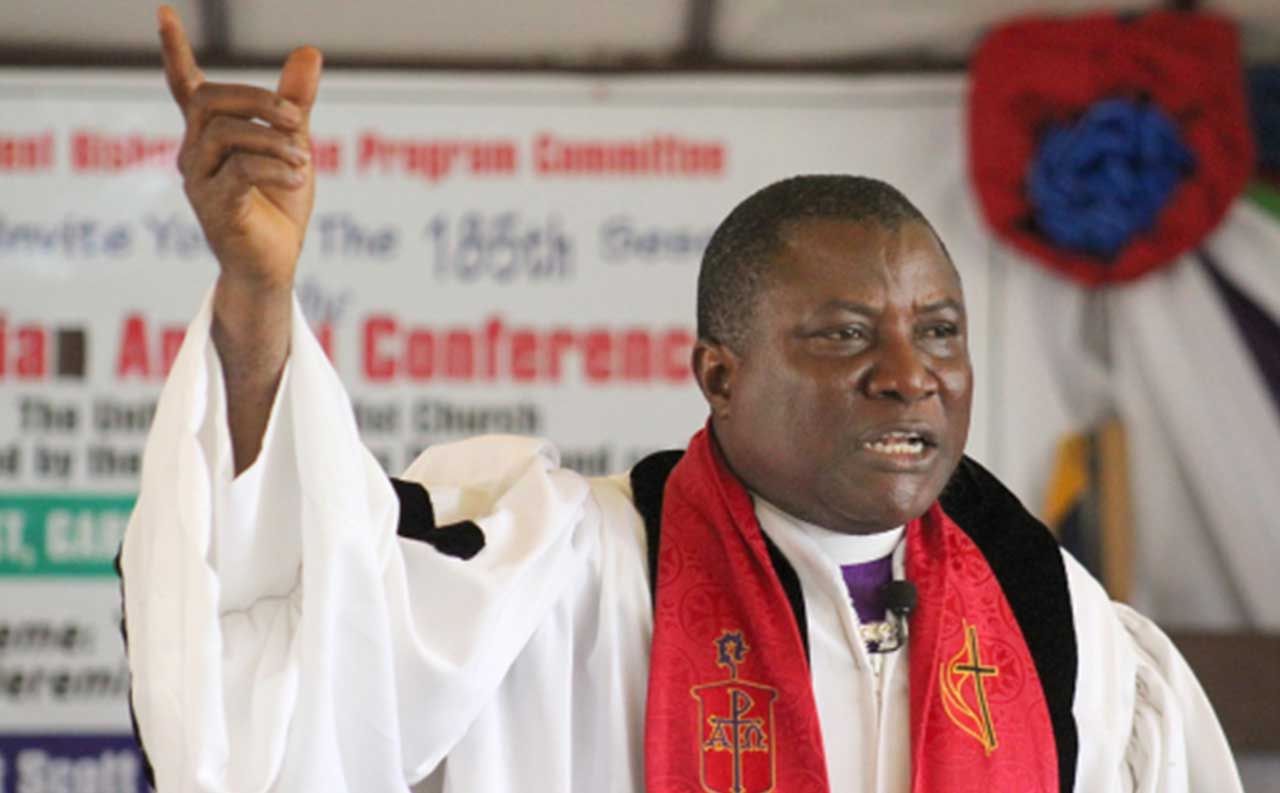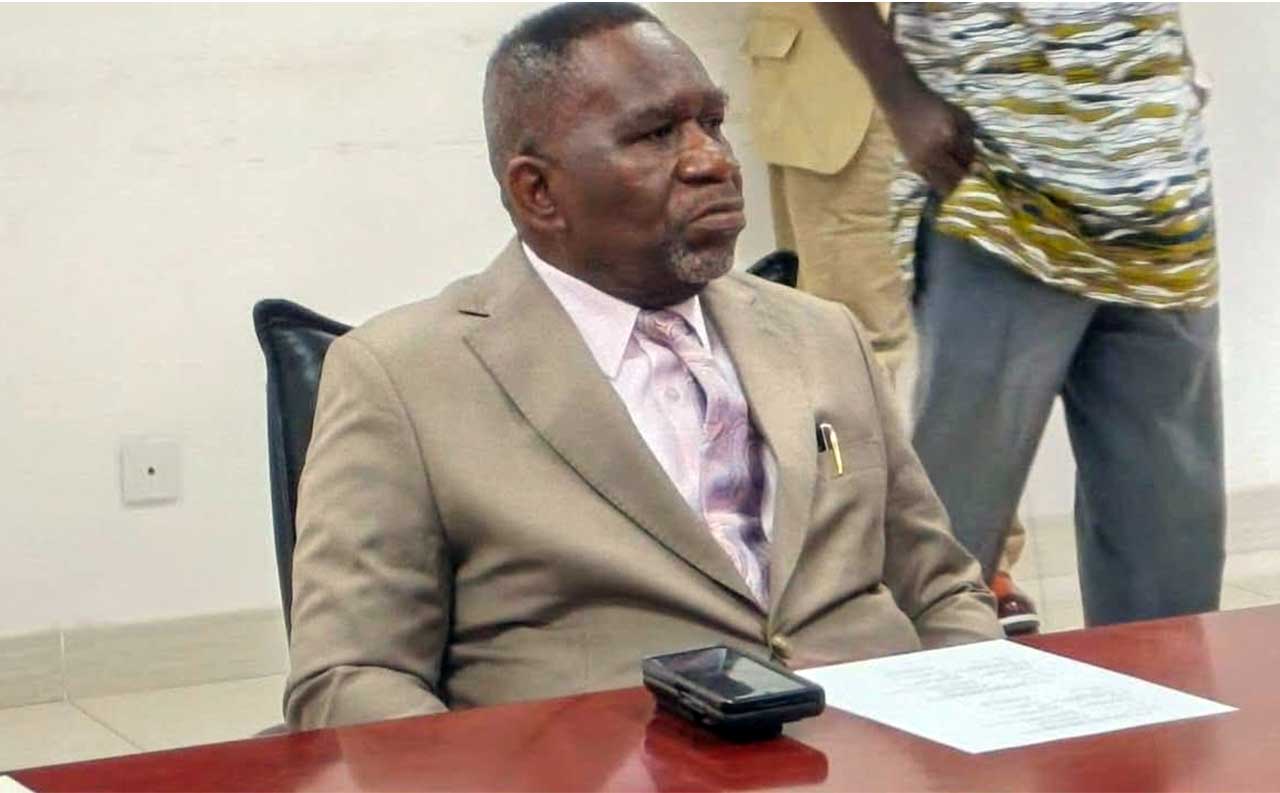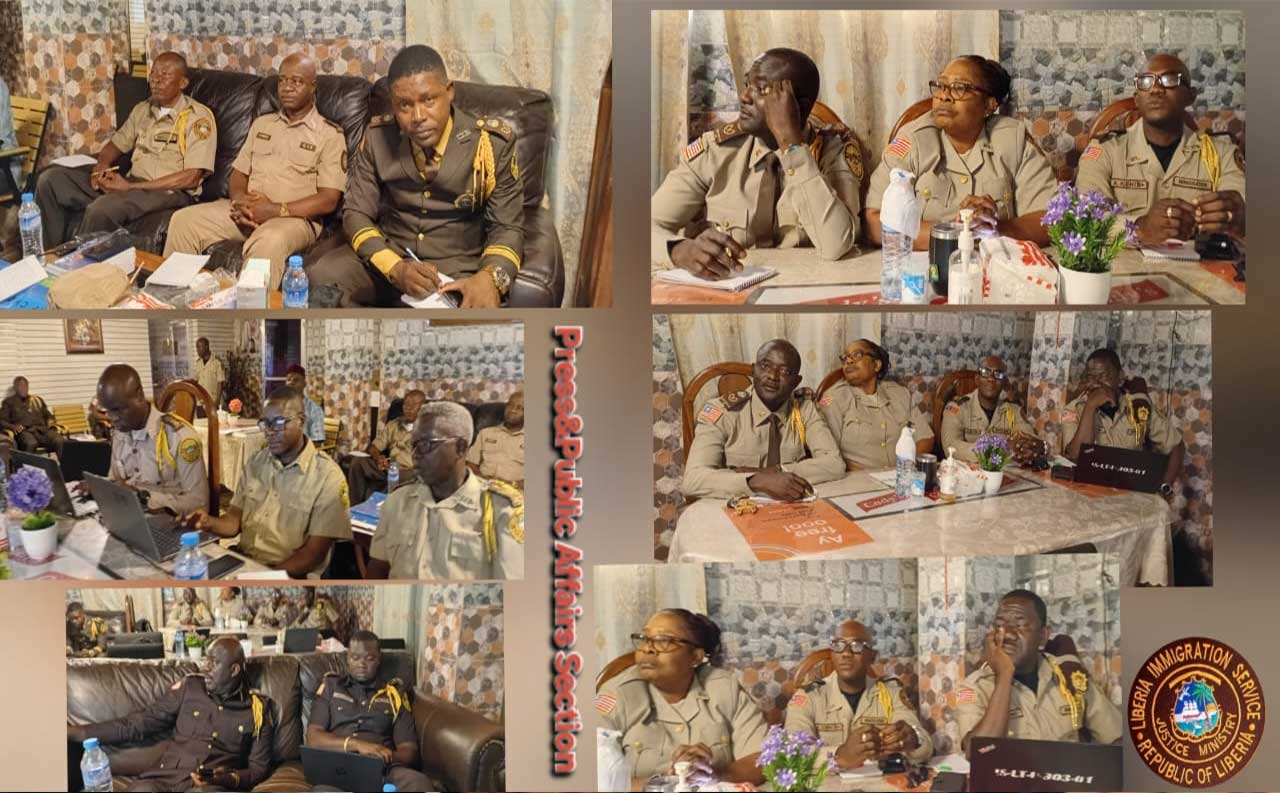The Executive Committee of the Liberia Annual Conference of the United Methodist Church (LAC/UMC) has responded to what they called ‘unwarranted disturbance’ at the S.T. Nagbe United Methodist Church in Sinkor by some members.
On Sunday, August 10, 2025, confusion erupted at the S.T. Nagbe United Methodist Church when some members of the congregation were prevented from having access to the building on grounds that the Bishop had ordered the closure of the Church. Upon arrival for their regular Sunday worship service, they were faced with a harsh reality that disrupted the purpose of their gathering. The Liberia National Police had locked the church premises and deployed heavily armed officers to prevent access to the facility and avoid further chaos.
This was not the first time a branch of the church faced such an experience amid the ongoing crisis regarding the recognition of same-sex marriage within the global church body. In the wake of the disturbance, the Executive Committee of LAC/UMC condemned the gathering, describing it as unwarranted and unfortunate.
“This latest incident occurred despite the church’s temporary closure, ordered by the Executive Committee on August 6, 2025, following months of escalating disruptions to worship services and sacred events, coupled with an uncooperative posture led by Mr. Cooper Tomah, a suspended church lay leader, along with certain other individuals,” a press release indicated.
The Methodist Church leaders said the street disturbance in front of the closed church premises further underscores the wisdom and necessity of the closure to prevent public nuisance and to protect lives, property, and the sanctity of worship. “For over three months, the premises of S.T. Nagbe UMC have been the scene of repeated acts of disorder, including the obstruction of church services and the disruption of sacred occasions such as weddings and funerals. These actions have undermined the peace, unity, and spiritual discipline of that congregation that our faith calls us to uphold,” the Executive Committee is quoted in a release as saying.
According to the LAC/UMC, the United Methodist Church reaffirms its unwavering stance that marriage is defined as a sacred union between one man and one woman, in alignment with the laws of the Republic of Liberia, which clearly define marriage in the same terms.
Since April 2024, after the General Conference in the United States, no same-sex marriage has taken place in The United Methodist Church in Liberia or anywhere in Africa — not a single one — and such will never occur under the leadership of the LAC/UMC. In further response, these were the words of the Executive Committee: “Methodist Church in February 2025, two key resolutions were passed: Defining marriage as solely between one man and one woman as in the Holy Bible. Mandating the Annual Conference Trustees to protect and defend all UMC properties across the country for the use of all United Methodists. The reality is that a group of persons, led by Mr. Cooper Tomah, a suspended church lay leader, and aligned with the ideology of the breakaway Global Methodist Church, had previously requested that their membership be suspended from the Liberia Annual Conference of The United Methodist Church. This same group is now attempting to occupy S.T. Nagbe UMC, invite GMC pastors, and claim the property as their own, while excluding legitimate United Methodists who wish to remain in the UMC.”
The Executive Committee dismissed claims that the dispute is about faith or same-sex marriage. “It is about church property, the building, and its rightful ownership.” However, some members of the Methodist Church accused Bishop Quire of seeking to transform their church into a “gay church” through a policy called “Regionalization.” This policy would allow churches to support programs aimed at the well-being of LGBTQ individuals who are members of the church—an initiative that has faced opposition from numerous churches.
Under this new policy, the church would redefine marriage as not solely between a man and a woman, but rather as “a union between two consenting adults of faith,” which contradicts the foundational principle of Christian marriage. The crisis has persisted for several months, and the events of August 10 may indicate a further deterioration of the situation within the United Methodist Church in Liberia and beyond.



